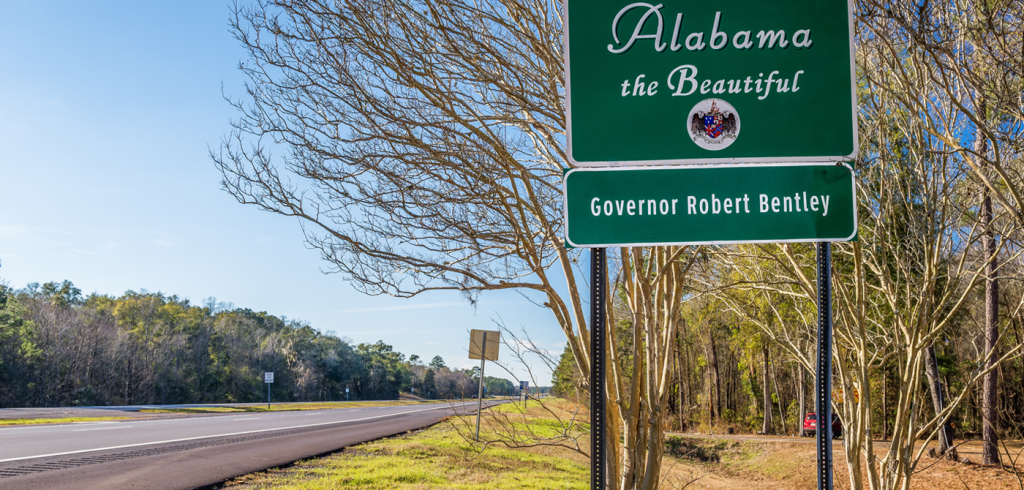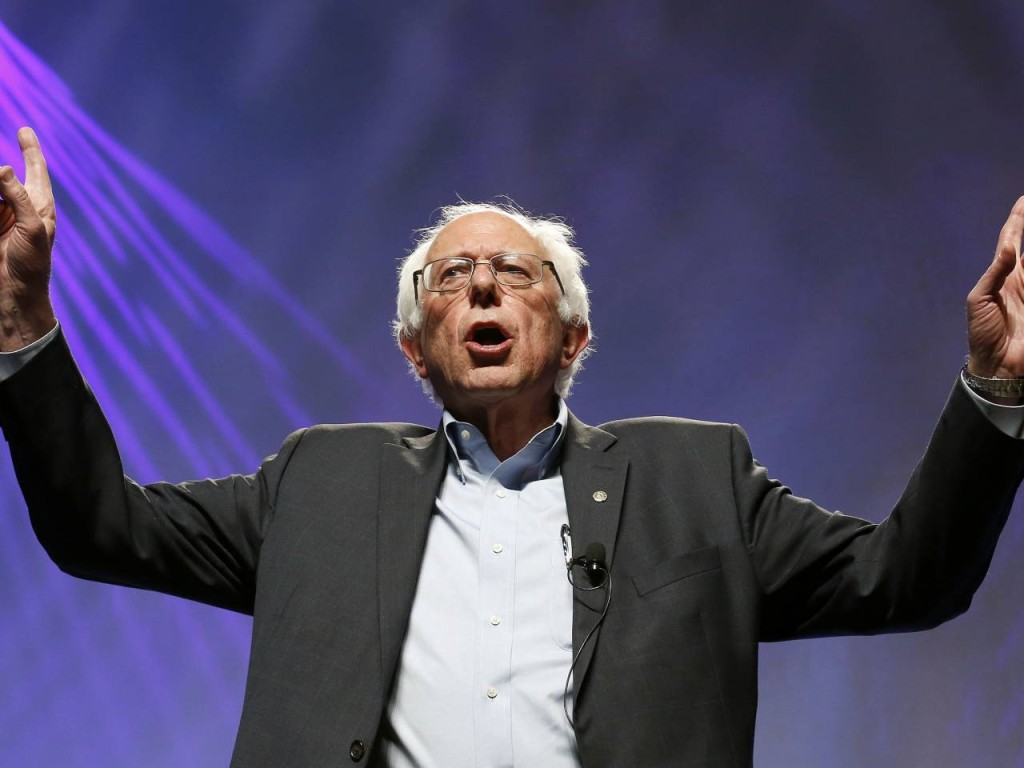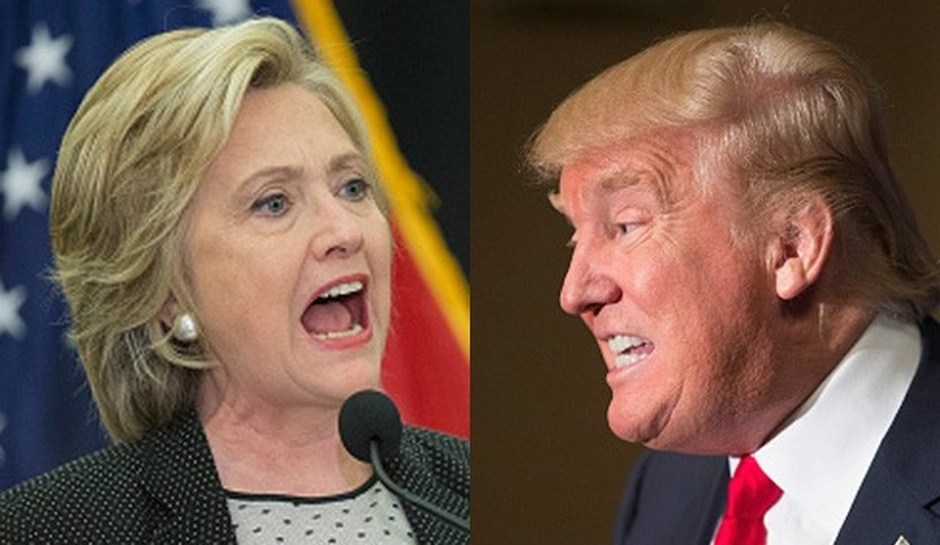Stephen Stetson: A good first step toward payday lending reform in Alabama

We’re calling for payday lending reform in Alabama, and we’re not alone. For years, reform of high-cost lending has been the goal of the Alliance for Responsible Lending in Alabama (ARLA), an incredibly wide-ranging coalition of activists and advocates. The groups pushing for reform span the spectrum, including Arise Citizens’ Policy Project, Alabama Appleseed, the Alabama State Conference of the NAACP, the Alabama Citizens’ Action Program, the Southern Poverty Law Center and the Federation of Republican Women. ARLA is a coalition staggering in its breadth and ideological diversity – and its members are excited to see the Alabama Legislature considering reforms that would lower costs for hundreds of thousands of payday borrowers now coping with interest rates of up to 456 percent a year. Let’s be clear: SB91, sponsored by Sen. Arthur Orr (R-Decatur) doesn’t give reform advocates everything they want. In an ideal world, lawmakers would cap interest rates on payday loans at 36 percent a year and allow more borrowers to be served by banks and credit unions (and family and friends), while making good plans and decisions about monthly budgeting. Sadly, that approach simply doesn’t seem politically possible right now in Alabama. Orr’s approach would do a whole lot of good for a whole lot of people, though. The bill, which the Senate is expected to consider in April, would enable the payday loan industry to stay in Alabama, while putting some common-sense rules in place to govern the loans. SB91 models reforms made in Colorado in 2010. The bill would cut interest rates, give payday borrowers at least six months to repay, and allow them to pay down the loan principal in installments. These would be meaningful changes. Under current Alabama law, payday loans are usually for two weeks and must be repaid in full, with no requirement for lenders to allow installment payments. In Colorado, extending the loans’ length and allowing installment payments has given borrowers a shot to reduce their debt without it eating up huge chunks of every paycheck. Fewer people are pulled into a ceaseless churn of short-term loan after short-term loan. Again, SB91 wouldn’t solve every problem related to consumer debt, and it wouldn’t eliminate the payday loan industry in Alabama. It’s a compromise proposal that would curb some of the worst excesses of an industry built on loans that leave far too many people trapped in debt. It would help keep some folks out of bankruptcy court, and it would allow more reasonable lending approaches to flourish. We all want a world where people can get the kinds of credit they need. But that requires putting some brakes on a system that all too often acts as an engine for poverty, handing out extremely high-cost loans to desperate folks who may treat them as a lifeline. Too often, those “lifelines” instead end up as anchors, dragging people into financial quicksand. A growing number of Alabamians now agree: The time has come to give payday borrowers some relief. SB91 would be a real and substantial step in the right direction for Alabama consumers. • • • Stephen Stetson is a policy analyst for Arise Citizens’ Policy Project, a nonprofit, nonpartisan coalition of 150 congregations and organizations promoting public policies to improve the lives of low-income Alabamians. Email: stephen@alarise.org.
J. Arthur/W. Canary: Legislature, invest in our roads and create a better future for Alabama

There is a proposal in the Alabama Legislature that includes reforms to the way we spend money on transportation infrastructure and adds much-needed investment for Alabama’s roads and bridges. Our crumbling infrastructure is an issue that affects all 67 counties and every single city in the state. According to the American Society of Civil Engineers‘ 2015 Report Card for Alabama’s Infrastructure, our roads received a grade of D+, and our bridges received a grade of C-. These grades illustrate the fact our state’s infrastructure – the roads and bridges our family, friends and loved ones rely on – is failing. We depend on roads and bridges when our children leave the house every morning on the school bus; We depend on efficient infrastructure because it creates jobs, promotes commerce and helps us export goods effectively; and We depend on these investments to create jobs and to protect our families. Not one single state legislator has denied Alabama’s infrastructure is important for all of those reasons or that additional investments are needed. Yet, there are still some who will oppose the current proposal, which is a very reasonable piece of legislation designed for those who use our infrastructure. In addition, this legislation includes many, many compromises reached with numerous stakeholders, legislators and the administration. Some legislators will oppose this plan despite the fact that it will provide a much needed economic boost to the very communities they represent. Each and every day, all of us are faced with yes-or-no scenarios. It is simply 50-50. For many saying NO is safe. NO goals, NO direction, NO ambition, NO vision, and NO plan. As a rule NO’s don’t move us forward. Instead, they could say YES! YES, I have decided to show courage. YES, I have goals and a plan. Here is where it gets tricky … It is not always easy to say YES. YES means taking chances, being courageous, putting oneself out there, and embracing the future. When we open ourselves to YES, amazing opportunities and exciting possibilities. If transportation infrastructure is important to you, educate lawmakers on the importance of infrastructure to your community. For lawmakers who may say “NO” to this plan, they must have a plan of their own to fix our state’s infrastructure. Otherwise, they are not doing the job they were sent to Montgomery to do: solve problems to fix our roads to create a better future for Alabama. It is their responsibility to do nothing less! • • • Jeremy L. Arthur is the president and CEO of the Chamber of Commerce Association of Alabama. William J. Canary is the president and CEO of the Business Council of Alabama.
Kay Ivey: Every meal matters

Hunger is an uncomfortable truth that affects children in our state; even some of our closest neighbors. To most of us, hunger can seem like a foreign term. Unfortunately, we are not talking about children on the other side of the globe, but in our local communities. The startling fact is that in Alabama, 300,000 (1 in 4) children do not know where they will get their next meal and risk hunger every day. Hunger is more than just a missed meal; it is a health problem, education problem, job readiness and workforce problem. Nutritious meals fuel our bodies and minds to function and properly develop. Children facing food insecurity in the first three years of life are more likely to start school behind their peers. According to the USDA, food insecurity occurs when people lack access to sufficient, safe, nutritious food due to lack of money or other resources. When children have access to nutritious meals– graduation rates increase, doctor visits decrease as children are less likely to get sick, and our economy is stimulated. Three years ago, End Child Hunger in Alabama (ECHA) was launched by Auburn University’s Hunger Institute, which I am pleased to serve as the campaign spokesperson. ECHA is a statewide, multisector initiative addressing the critical issues of hunger and food insecurity facing Alabama’s children and youth. ECHA focuses to increase Alabama families’ economic stability, cultivate a strong regional food system, build public will to end childhood hunger, improve the food assistance safety net for Alabama’s children, support community action, and enhance children’s health and prevent obesity. Since 2013, ECHA has made great strides on behalf of childhood hunger due to the collaborative effort of outstanding key leaders serving on the task force. End Child Hunger in Alabama has recently launched the Every Meal Matters campaign. The campaign includes a public service announcement that is being shown on televisions across our State to bring to light the pressing issue of child hunger and the importance of nutritious meals for Alabama’s children. Hunger is preventable in our state, but we must work together. The children of our State deserve our attention. Together we can start a public movement to combat childhood hunger in Alabama. Join me in getting involved with a local feeding organization and share the PSA below. Visit endchildhungeral.org for more information. #EveryMealMatters • • • Kay Ivey is the lieutenant governor of Alabama. Elected in 2010, she was the first Republican woman to hold the office in Alabama’s history.
Fantasy sports, gambling could be big business for state

A slate of bills aimed at loosening Alabama’s gambling laws and setting the state up to benefit from the lucrative gaming industry have been slowly winding their ways through the legislative chambers this Session, but none have gained any real traction in a Legislative Session marred in controversy over ill-fated budgets and sexually explicit recordings. Despite that, the bills keep coming, aimed at regulating untapped gaming revenues and opening the doors to a state lottery and even full-on casino gambling. The first high-profile lottery bill was announced only days before the start of the Legislative Session. Sen. Jim McClendon (R-Springville) and Rep. Alan Harper (R-Northport) introduced SB19 and HB13, respectively, that offer a constitutional amendment to allow a state lottery to be established. The bill makes no mention of how the proceeds from such a lottery would be spent, it only allows for residents to vote on whether a lottery should be operated in the state. Legislators would be tasked with figuring out how to set up and allocate the proceeds next year. The Harper-McClendon legislation has passed hurdles in their respective committees, but so far has not come up for discussion on either floor Rep. Craig Ford (D-Gadsden) has offered four bills aimed at establishing the Alabama Lottery Commission and distributing the proceeds from the operation. HB10 would establish the commission, as well as the Lottery Trust Fund where profits would be stashed to fund college scholarships for qualifying students. HB208 establishes the Alabama Gaming Commission, which would oversee pari-mutuel wagering at county-approved racetracks and levy taxes on some establishments. HB209 is the meat and potatoes of 10 and establishes all of the commissions, corporations and funds required to oversee the proposed state lottery and gaming endeavors. HB278 allows the governor to negotiate a compact with the Poarch Creek Indians, who are currently the only operation allowed to offer slot-machine gaming in the state. Like the Harper-McClendon bills, Ford’s bills have gone before their required committees but have gained no real traction. Sen. Trip Pittman (R-Daphne) has offered his own lottery bill, SB232, which would allow Alabama to participate in other multistate lotteries and compel the legislature to establish rules regarding the enterprise. Pittman’s legislation has gone before committee but has not yet come out on the other side. Rep. John Knight (D-Montgomery) has offered HB263, which would simply repeal Alabama’s prohibition on a state lottery. Knight’s legislation was directed to committee in February but, so far, has gone nowhere. And while lottery and pari-mutuel gambling has long been a centerpiece of Alabama’s political discourse, a newcomer has made its way into the fold. Two bills have been filed to regulate fantasy sports contests in the state, possibly setting the state up to be involved in what has quickly become a multibillion operation. SB114 from Sen. Paul Sanford (R-Huntsville) and HB56 from Rep. Connie Rowe (R-Jasper) would both establish regulatory rules regarding fantasy contests in the state. The bills would require contest operators to institute procedures for consumer protection, require audits of operators and provide penalties for those operating outside of the established regulations. Further, the bill makes the industry immune from being considered a gambling operation in the state. Both have seemingly stalled in committee. Despite the fact Alabama could benefit greatly from the revenue that these types of gaming operations would generate – Missouri is expecting to generate “several million” dollars off of fantasy contest regulation (an industry slated to rake in about $20 billion by 2020) and South Dakota has raised nearly $2.5 billion through its state lottery – state lawmakers appear poised to avoid a vote on the topic and let another year tick by with no good answers on how to generate much-needed funding. Being in the Bible Belt may be the biggest reason Alabamians have long opposed such gaming operations, but it doesn’t hurt that organizations that run gambling enterprises, such as the Poarch Creek Indians, have funneled money into anti-gambling candidates’ campaigns. The New York Times reported in 2014 that the group had covertly spent $350,000 to fund anti-gambling candidates. And that wasn’t the first time. In the late 1990’s, Christian Coalition Chairman Ralph Reed was caught up in a scandal with GOP lobbyist Jack Abramoff. The duo funneled $1.3 million from the Choctaw Tribe to the Alabama Christian Coalition. The move was made to hide that the money had come from Choctaw gaming interests and used to fight video poker and a proposed lottery in the state.
Bernie Sanders aims for big fundraising haul in March

Democratic presidential candidate Bernie Sanders raised more than $39.7 million in March and is aiming to surpass $43.5 million for the month, his campaign said Thursday as both he and rival Hillary Clinton face monthly fundraising deadlines. Sanders raised more money than Clinton in February but the former secretary of state has maintained an advantage in cash on hand. The fundraising is important as the Democrats prepare for next week’s Wisconsin primary and New York’s primary on April 19. Clinton campaigned in the suburbs of New York City on Thursday while Sanders held events in Pittsburgh and New York City. In Pittsburgh, Thursday, dozens of people in various union T-shirts – including United Steelworkers and a letter carrier’s union – stood behind Sanders as he addressed the media. Sanders attacked Clinton for supporting NAFTA and free trade agreements with China, saying they made it easier for corporations to ship jobs to other countries and leave Americans out of work. He called for “a moral economy, not an economy based on greed and selfishness.” Sanders said that even when factories don’t close, the trade agreements relegate workers in a “race to the bottom,” with corporations going to unions and forcing them to make concessions under threat of moving out of the country. Republished with permission of the Associated Press.
Marc Yacht: The voters are angry and unhappy

The late singer Ted Lewis in top hat, cane and tuxedo would look straight at the audience and ask, “Is everybody happy?” He would go on to sing, “Me and My Shadow” or any number of songs in his repertoire. The audience laughed then, but there would be little amusement today. Very few are happy. Democrats and Republicans disagree on most issues, but they are kindred spirits in their distaste for political leadership. According to numerous Pew Research Center polls, Americans have lost confidence in traditional politics. Voters feel betrayed. Republican distaste for Democrats and President Barack Obama runs much deeper than suggested racial bias. The Democratic disdain for Republicans has to do with congressional gridlocks and the GOP’s attitudes about the poor and women’s rights. The popularity of Donald Trump and Bernie Sanders shows the parties’ failure to deliver what voters expected. Republicans and Democrats feel abandoned and are convinced that big money drives the political agenda. They have been lied to and deceived for decades and are right. Now, the birds are coming home to roost. At stake is the future of the two-party system. Trump may hold the key to Republican survival. Sanders’ popularity may not destroy the Democrats but should change their direction and focus. Despite arguments by the Obama administration that the economy is better, the middle and working classes are not seeing this in their wages and lifestyle. What they are seeing is an abuse by corporate executives to fatten their wallets while using lobbying influence to undermine wages. The middle class now feels this pinch. Frontline plant workers have suffered stagnant wages for decades. Many of those workers have been staunch Republicans but cannot ignore inadequate incomes. Furthermore, the future appears bleak. The millionaires, billionaires, corporations and Wall Street are the villains. People believe that generous bonuses were paid to executives with money that was supposed to assist people who were losing their homes. Few were helped. Called “corporate welfare,” the abuses continue. Neither Republicans nor Democrats have digested that betrayal, though each side blames the other. Both sides are to blame. There has been no accountability for the flagrant fiscal abuse. All voters are frightened of terrorism. Recent events in Europe and California perpetrated by extremist Muslims have Americans scared. Irresponsible media pundits are whipping up hate but clearly more is needed in the way of policy than Muslim appeasement. A lack of a sound immigration policy angers voters. Political correctness is thwarting needed action. The public needs to know what is being done to identify Muslim extremist groups to avert further tragedies. Congressional gridlock has angered both sides. People expect Congress to function and many voters are abandoning their party leaders because of the dysfunction. A Gallup poll says that Americans believe that government is to blame for the sluggish economy, lack of jobs and immigration chaos. Politicians are seen as abrogating their responsibility to the people who elected them. The U.S. is losing respect internationally. Americans note that other rich nations see a divided America becoming more estranged from its citizens. Trump and Sanders have tapped into the angry American voter. Both parties may have lost the confidence of their constituents. Once trust is lost, it is very difficult to regain. The parties have neglected their voters for too long. If the Republican leaders are successful and derail Trump, how will Republican voters react? If the Democrat leadership marginalizes Sanders, how will Democratic voters respond? Voters on both sides agree that we need politicians who will serve the public. Most voters feel elected officials have failed them. *** Dr. Marc Yacht, MD, MPH is a retired physician living in Hudson Florida.
Pew Research: Here come Asian immigrants, Millennials and unaffiliated voters

Huge immigration over the past 40 years have made Hispanics America’s largest minority group but the next wave is Asian immigrants, and they will overtake Hispanic immigration in coming decades, according to a new report from the Pew Research Center. What’s more, Millennials might already be the nation’s largest generation, surpassing Baby Boomers. Women breadwinners continue to be a rapidly-growing group in America. And whites, blacks, Christians and the middle class all will continue to lose share of the American population over the next few decades, the new Pew report, ten demographic trends that are shaping the U.S. and the world, states. The trends, all clearly evidenced in Florida, which in most ways is ahead of the national curves on demographic trends, lay out new economic, social and political policy challenges, and also, help explain many of the immediate conflicts in American society and politics. “At its core, demography is the act of counting people. But it’s also important to study the forces that are driving population change, and measure how these changes have an impact on people’s lives,” Pew authors D’Vera Cohn and Andrea Caumont state in the report released Thursday morning. “For example, how does immigration affect U.S. population growth? Do Americans feel that children are better off with a parent at home, in an era when most women work? How is the rise of the young-adult Millennial generation contributing to the rise of Americans with no stated religion?” Among the trends Pew highlights are: The U.S. population is projected to become even more diverse in coming decades. Within 50 years, Hispanic, Asian and black Americans will become a majority — 51 percent — while whites slip to 46 percent of the population. Hispanic immigration is declining, and Asian immigration is increasing, so that within three or four decades Asian immigration will surpass Hispanic immigration to the United States. Already, whites are likely to represent less than 70 percent of the American electorate in 2016, making it the most diverse electorate in history. Wide generational gaps are opening on political views, particularly on social issues. “Young adult Millennials are much more likely than their elders to hold liberal views on many political and social issues though they are also less liable to identify with either political party: 50 percent call themselves political independents,” Cohn and Caumont write. And Millennials are the most diverse generation ever, with 43 percent nonwhite. Yet, many Millennials struggle with student debt, and, faced with the weak labor market of recent years, many still live at home. Despite these troubles, Millennials are the most upbeat about their financial future. The share of U.S. adults living in middle-income households fell to 50 percent in 2015, after more than four decades in which those homes served as the nation’s economic majority. Christians are declining as a percentage of the American population while people identifying themselves with no particular religious institution is growing rapidly.
Larry Sabato’s Crystal Ball portends a potential Democratic blowout presidential election

University of Virginia political science professor Larry Sabato latest “Crystal Ball” prediction of the 2016 presidential election spells gloom for the Republican Party this November. The longtime political analyst is predicting that if it’s a Hillary Clinton–Donald Trump matchup, it will be an electoral college blowout, 347-191. Sabato’s Crystal Ball is a weekly online political newsletter and website that analyzes American politics. In the new column, written by Sabato, Kyle Kondik, and Geoffrey Skelley, the authors acknowledge that while it’s an “extra-early, ridiculously premature projection” that could change after the conventions and a possible third-party candidacy. However at the moment, the electoral map doesn’t look very competitive for the GOP going into November. Nearly a year ago, Sabato put Florida into the “toss-up” column, but no longer. Now the Sunshine State is being put into the same bucket of other swing states like Virginia, Ohio, New Hampshire, Nevada, Iowa and Colorado. The Sabado Crystal Ball has now moved all seven states from “toss-up” last May, to now “leaning Democratic.” “While some will fall to the Democrats less readily than others, it is difficult to see any that Trump is likely to grab,” the authors write, adding that four normally Republican states (Arizona, Georgia, Indiana, and Missouri) “would be somewhat less secure for the GOP than usual.” But what about the possibility of Trump expanding the electoral map, as some pundits have speculated could happen with his stances on trade and other issues that could bring along disaffected white workers? “The problem is, there is little evidence that the non-college voters supporting Trump in the primaries are defectors from the Democrats; most have been backing GOP candidates fairly consistently, so the net addition for Trump could be small,” the authors write. “Nor do we buy the theory that increased Republican primary turnout this year means Trump is going to bring out millions more white and primarily male voters that weren’t excited by John McCain in 2008 and Mitt Romney in 2012. Maybe there will be higher white male voter participation, but there will probably be augmented, heavily Democratic minority turnout to balance it.” Although a Clinton-Trump matchup could be an electoral embarrassment for the GOP, Sabato says that because of the political polarization in the country, this would not be an overwhelming victory for the Democrats with the popular vote, as were the blowouts in 1964 and 1972. He sees Clinton taking less than 55% of the two-party vote. The Crystal Ball believes that Ted Cruz would definitely be an electoral improvement for the Republicans, but he would not have enough to secure victory over Clinton. He writes that the “irony” is that Clinton was always an eminently beatable candidate, but more mainstream candidates like John Kasich and Marco Rubio simply haven’t inspired Republican voters.


